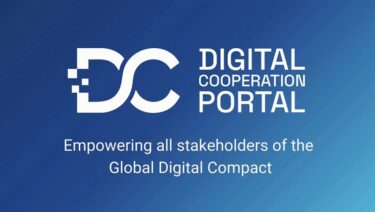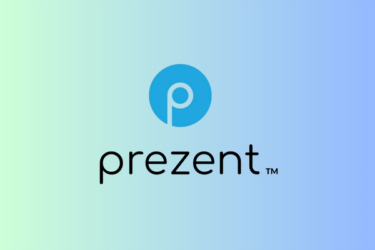Article by Mike Hoey, Founder and Owner of Source Meridian
Digital technologies have already disrupted huge areas of healthcare and, in 2025, the pace of innovation is set to accelerate at an incredible pace thanks to the power of emerging AI solutions.
Technology and AI have already proven their ability to perform incredibly well at certain tasks such as diagnosing cancers from radiology data, spotting epidemiology trends, monitoring the health of outpatients, and unlocking secrets within population health data to name a few leading examples.
At Source Meridian, we’re fortunate to work with some of the world’s leading healthtech companies to develop disruptive AI technologies that will become commonplace parts of the patient experience in the future.
With that in mind, here are three ways AI is already being utilized, and what these current applications might evolve into in the near future.
Easing the burden on healthcare providers
The administration burden placed on the shoulders of medical professionals has been a growing concern for years. Although popular culture often paints an idea that doctors have endless time to make the rounds, in reality, doctors have more patients than they can handle due to overstretched healthcare systems.
Helping to relieve some of the pressure by reducing the number of hours spent on admin means that doctors can get back to what they’re trained for: treating the health concerns of patients.
Right now, there are AI applications that allow doctors to automate the process of taking notes, performing administrative tasks, and automating processes related to patient records all in a way that generates HIPAA-compliant data.
These tailored digital solutions are having an incredible impact on the productivity of healthcare providers.
For example, Amazon One Medical has found that AI reduces the administrative burden by 40%, while the Suki platform acted as an AI assistant for almost a million healthcare clinicians in the US in 2024.
While paperwork and administration may not seem like the most exciting use of AI, it’s a task that the technology is well suited to. Further, it addresses a major point as healthcare providers globally feel the pinch.
Looking ahead, the assistive capabilities of AI will bring in a new wave of smart clinical practices, intelligent hospitals and connected healthcare systems to make the delivery of care even more seamless and efficient.
Patients embrace AI in screening protocols
While AI is still no match for real doctors in certain areas and when it comes to compassion, it is able to outperform humans in some areas.
Radiology and diagnosis is one of these examples. Although trained radiologists are incredibly careful at examining MRI scans or X-Ray data to spot signs of disease, unfortunately there are some signs and symptoms that are almost undetectable to the human eye.
Yet sophisticated machine learning algorithms can detect these subtle differences in scan data. This means the medical community is confident we’ll be able to spot a number of cancers and diseases like Alzheimer’s at a much earlier stage to improve patient outcomes.
A recent 2024 study published in Radiology detailed the use of AI to detect prostate cancer from MRI scans and predict recurrence rates. And while some uses of technology in healthcare are met with reticence, radiology is not one of them. Research presented December 1 at RSNA 2024 found that 9 in 10 women welcome the use of AI into breast cancer screening.
Just as Rene Theophile Hyacinthe’s primitive first stethoscope revolutionized our understanding of such common illnesses and pneumonia and bronchitis, AI-enabled imaging software stands to enhance our understanding of entire systems of the body.
However, AI will sometimes overlook certain things that a doctor would catch. For instance, software may excel in detecting lesions in images of the human body, but right now it will ignore the type and biological aggressiveness of the lesion. The call to make a diagnosis lies still in the hands of the doctor.
Nevertheless, AI-enabled imaging unlocks new options for physicians when forecasting the kinds of treatments and diagnoses their patients might need in the future.
Fast-track drug development and novel treatment
Innovation in the healthcare industry is often slowed by complicated legalisation, lengthy clinical trials and outdated legacy systems.
Yet the COVID pandemic highlighted that rapid drug development and official approvals are possible, given that the first functional vaccines essentially predated lockdown measures.
Medical experts and tech innovators have seized the opportunity to disrupt the status quo and accelerate drug discovery without risking accuracy or safety. For example, novel software can engineer drug models and simulate what those drugs will do when they interact with the human body.
Taking this one step further, if scientists can model what a virus looks like, they can try to create drugs designed to create an immune response. Algorithms run through countless potential expressions of a drug, conduct machine-based testing, and then provide a potential conclusion as a starting point for the actual process of manufacturing the physical prototype.
Some software is able to predict how well a drug will react with such accuracy, that the FDA will accept the results of their data in place of a toxicology report. This is the first step in groundbreaking new science that will lead to a whole new class of drugs with widespread applications, like the mRNA vaccines developed during the pandemic.
In the future, experts predict that digital twin technology will accelerate these processes even further, with AI-generated synthetic hearts used to reflect not just biological attributes like weight, age, gender and blood pressure, but also health conditions and ethnic backgrounds. Meanwhile
Benevolent’s AI platform connects structured data from clinical and chemical databases, and unstructured data taken from the scientific literature to make unprompted, independent suggestions for new drugs.
In today’s world, artificial intelligence continues each day to enter the healthtech mainstream. At Source Meridian we look forward to continuing to be at the leading edge of this industry.












